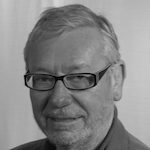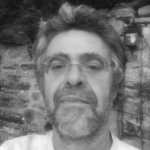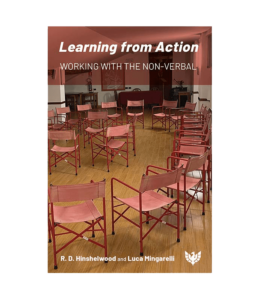

R. D. Hinshelwood is professor emeritus at the University of Essex, and previously clinical director at the Cassel Hospital, London. He is a fellow of the British Psychoanalytical Society, and of the Royal College of Psychiatrists. A long-time advocate of alternative psychiatry, he was a founding member of The Association of Therapeutic Communities, and co-founded The International Journal of Therapeutic Communities. Luca Mingarelli is a social entrepreneur, psychotherapist, and organisational consultant. He is founder and director of Therapeutic Communities for Adolescents and past President and now Associate President of Il NODO Group Association and an OPUS member. He is founder and board member of the International Network Therapeutic Communities (INDTC) and of Mito&Realtà Association with the role of national convener of therapeutic communities for adolescents.
Here, following the publication of their edited book ‘Learning from Action: Working with the Non-Verbal’, they discuss how the Learning from Action workshops can contribute to therapeutic communities, and consider the kind of progressive learning which this kind of experiential method allows for.
At the heart of the therapeutic community is the important contribution that members make to the community and hopefully to society in general, and to the well-being of each other. One can gain health by concentrating on the healthy side of oneself that can make a contribution, and moreover crucially by concentrating on other’s contributions as well. It is the experience of contributing which the therapeutic community enables, whether it is with full awareness or not. For those people employed as staff to support this form of health, it is essential that we all know something of this experiencing, and how to support those who have retreated from it.
In order that staff members of therapeutic communities should know something of this kind of experience, we the editors and chapter authors of this book, Learning from Action, have for more than two decades been involved in developing ‘experiential’ conferences, or workshops where it is possible to learn about the experience of making contributions to others and to the community as a whole; and in addition to learn about what hinders people making contributions, what undermines them, and what kinds of support might be needed to enable their contributions.
Because the emphasis is on experiencing and the subjective ‘being’ in a community the core of these conferences has taken the elements of the Group Relations method which has evolved over nearly 70 years to enable conference members to learn from their conference experiences. This method seemed perfect for adapting to the method of learning about the core element of a therapeutic experience.
From the progressive learning about this kind of experiential method, we (Bob and Luca) have drawn together some 20 or so people to fill the contents of this Learning from Action book with the reflections and learning, and the relevance of a communal experience – indeed the book itself has become a community! The book aims to do two things; firstly to create a body of thought to which reference can be made for the indefinite future. And second to encourage people to both come to further conferences arranged by the Il Nodo Group Social Enterprise, or to establish their own variants of this experiential method. We would encourage people to come to the next occasion (in this coming October) or to connect with either of us for support in organising these events in your own countries.
‘Learning from Action: Working with the Non-Verbal’ is available from our website now.


